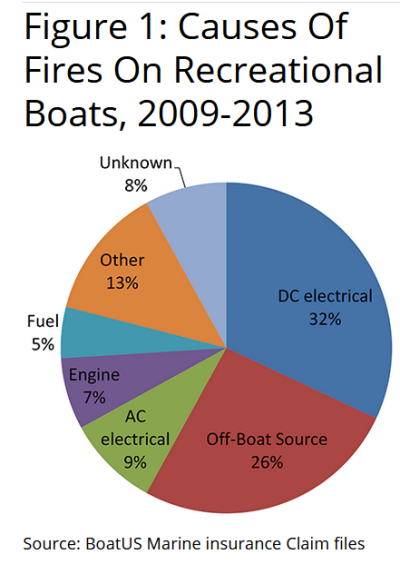I previously posted a thread about selling surveys but there was another part to that post that has not been picked up or discussed. I'm would like clarification from knowledgeable forum members about the requirements concerning fire protection, specifically in a trawler engine room. I received some comments from sailors saying many sailboat engine rooms are not protected. My first boat was a Tartan 27 with Atomic 4 gas engine with no permanently installed extinguishing agent. Since then I have owned a few trawlers and they all had Halon extinguishers both automatic and manually actuated (that is another thread for discussion altogether). The question is about regulations covering the extinguisher system itself, i.e. are they a legal requirement or just a common sense item to install ?
To compound the issue we all know that if fire does break out in the engine room the last thing one wants to do is OPEN the hatch and allow oxygen to enter and discharge a hand held extinguisher...the fire would flare up in your face.........please be nice and sincere with your comments...Thanks
To compound the issue we all know that if fire does break out in the engine room the last thing one wants to do is OPEN the hatch and allow oxygen to enter and discharge a hand held extinguisher...the fire would flare up in your face.........please be nice and sincere with your comments...Thanks

